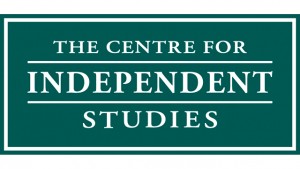Home » Commentary » Media Release » New CIS paper: Explaining economic reality for uni students
· MEDIA RELEASE
 Too many people, and particularly far too many tertiary students, are ignorant of the economic realities about free market, prosperity and political freedom, according to academic and author Dr Steven Kates.
Too many people, and particularly far too many tertiary students, are ignorant of the economic realities about free market, prosperity and political freedom, according to academic and author Dr Steven Kates.
Following on from his popular book Economics for Infants, and a forthcoming publication explaining the topic for children, Dr Kates has written a paper that aims to cover the knowledge gap he commonly sees in university students.
The paper – I, Mechanical Pencil – is an extension of Leonard Read’s famed 1958 publication I, Pencil, which used the example of a lead pencil to outline the importance of a free society in creating the conditions that underpin prosperity.
I, Mechanical Pencil develops Read’s points, and then goes onto to outline the specific elements that must of necessity exist in any social system if a productive economy is to emerge.
“If our intention is to maintain both our existing and rising prosperity as well as ensuring that political freedom is maintained as well, it is essential that everyone understand the role of free markets,” Dr Kates says.
“Too many believe some kind of socialist utopia can be achieved if only the right kinds of people took the right kinds of action. This is a fallacy.”
Dr Kates says every economy that wants to remain prosperous must have all of the following:
(1) entrepreneurs independent of the government
(2) a financial system in which national savings are allocated through a market process to those who are expected to use these savings most productively
(3) a price mechanism through which virtually all prices are set by businesses for themselves without outside interference
(4) business profitability as the main determinant of what is produced and how it is produced
(5) government regulation of the economy in ways that ensure the economy is able to grow, adapt to change and introduce innovation and
(6) resolute defence of property rights which ensure that those who produce feel certain they will be able to reap the harvest where they have sown.
“Not only are these each of these elements individually essential if an economy is to prosper, they are also essential to maintain political freedom as well,” he says. “One cannot have one without the other, but many people — and unfortunately most university students — are increasingly ignorant of the economic facts.”
Steven Kates is Adjunct Associate Professor in the RMIT School of Economics, Finance and Marketing
New CIS paper: Explaining economic reality for uni students